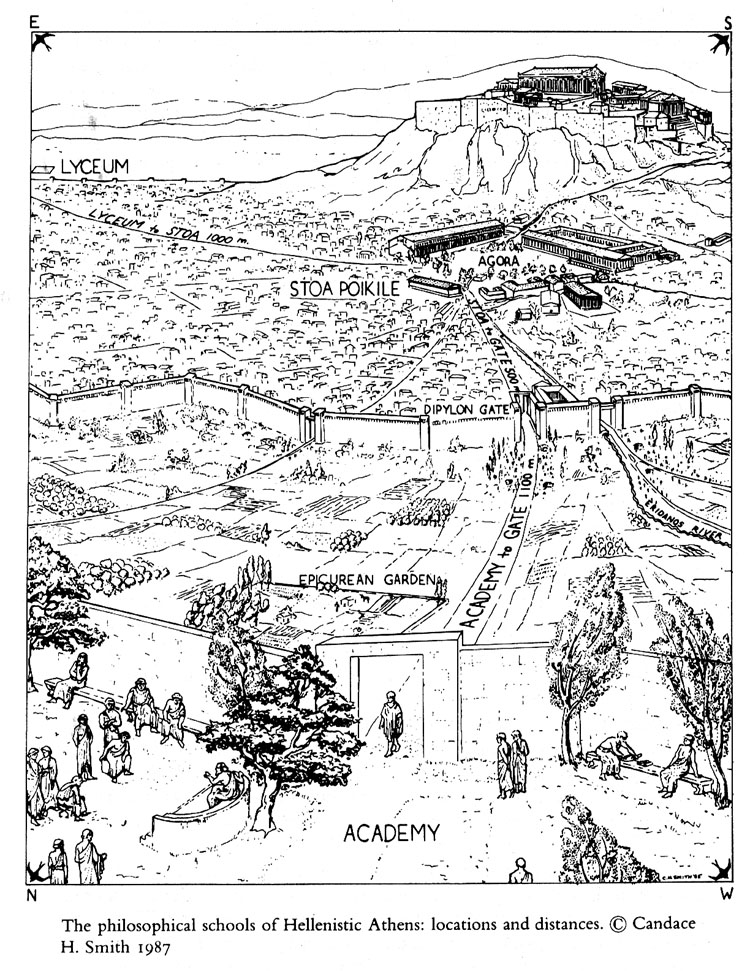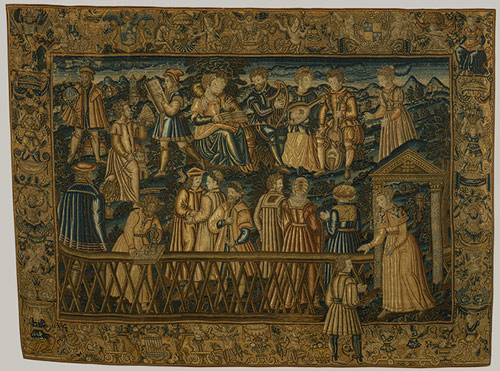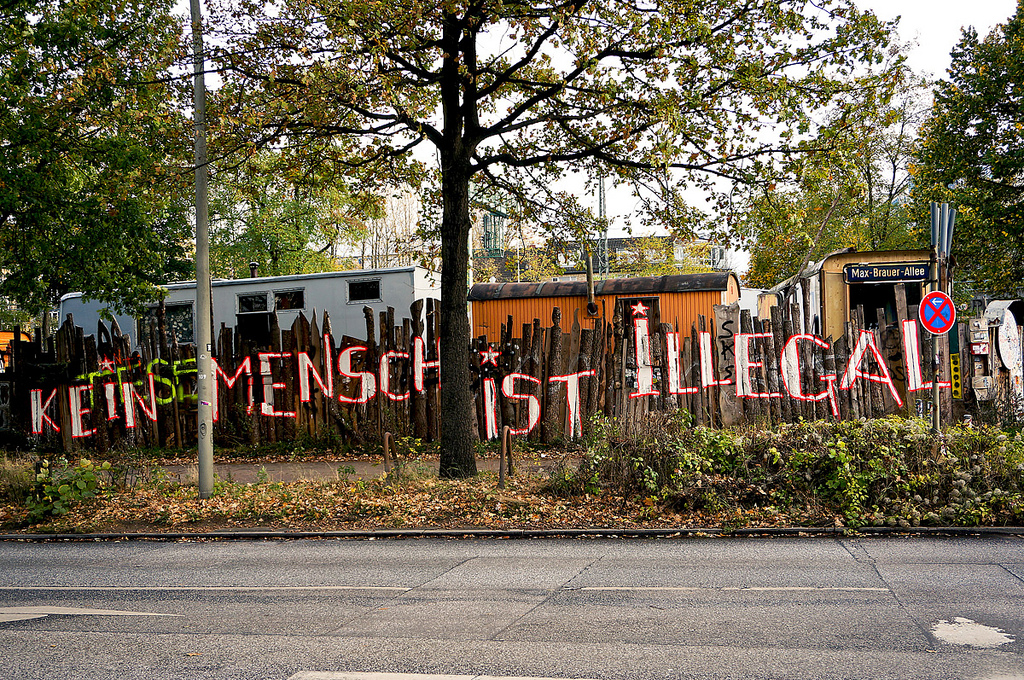EPICURUS

The philosophical schools of Hellenistic Athens, illustrated by Candace H. Smith
The School of Epicurus, about 300 BC, refused the Zeitgeist of its social environment without being escapist. Epicur developed his own system of self-reliance, albeit one that was accessible by a community: the shaping of a theory of happiness, whereby the term was removed from its traditional connection with the status of a (male) citizen. People of all social classes could come to The Garden, at times up to 200. In disassociation with the ruling norms, Epicurus welcomed women, slaves and couples. The Garden of Epicurus was a proper vegetable garden. Not just for the sake of the fruits, plotting the ground was a form of practicing of the cycles of growth and decay in nature. The coactions of life forces in the microcosm of the garden brought greater connections to surface: those between human and matter, the productive reactions of living things to attentive care, the insight into the mortality of all life. This was followed by the conclusion that the observation of nature brought forth the conviction that human – an organic cultivation, much like the garden itself – was in favor of a moral, spiritual, and intellectual cultivation. The term “Ataraxia” took center – as requirement for the experience of happiness. Not nature-given, but a cultivated spiritual condition – pervaded by the same tension of entropy and order as the garden: it is not only necessary to gain something, but also to maintain it constantly.
We also selected The Garden of Epicurus for being an unequalled testimony of what distortions theories suffer in their abbreviated translations and transfers or rather in their induction for newer ideologies, and how these proceed to haunt today. Instead of its transformative concern, Epicurus’ theory of happiness has been twisted into the norm of a hedonistic neo-liberalism. Its fundamental term of Ataraxia even has splintered off and been ground into an illness.

Error and Ignorance. The Garden of False Learning, ca. 1550–80, French
wool and silk on canvas, Metropolitan Museum NYC
wool and silk on canvas, Metropolitan Museum NYC

Hamburg